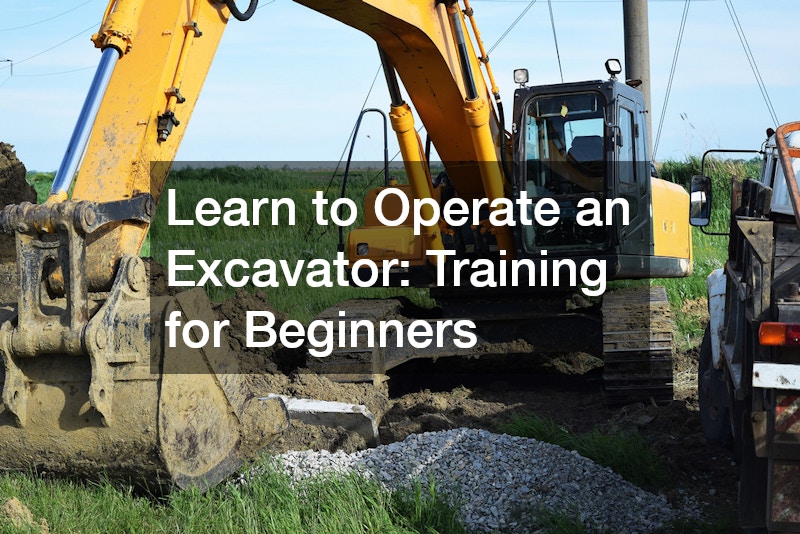Whether you’re a complete beginner or seeking to refresh your skills, this guide covers the essential aspects of excavation operation. Excavators are complex pieces of machinery requiring in-depth knowledge and competent handling. By understanding the nuances of operating this machinery, you will enhance your construction skillset and potentially open new job opportunities in the industry.
Why is Excavator Training Important?
Excavator training is crucial because it ensures the operator understands both the functionality and safety measures associated with operating such heavy machinery. Without proper training, the risk of accidents and inefficient handling increases significantly. Training programs aim to mitigate these risks by familiarizing operators with machine controls, safety protocols, and best practices. The dynamic landscape of Rigby, ID, presents unique challenges that require specialized training to address its specific excavation needs. Therefore, structured training programs not only enhance individual competency but also contribute to overall workplace safety.
Beyond safety, excavator training directly impacts project efficiency and quality. Without thorough understanding and practice, operators may struggle with tasks such as precise digging, avoiding underground utilities, and barring structural damages. Trained operators can execute tasks with greater precision, reducing project timelines and waste.
What Types of Excavators Are Common in Rigby, ID?
In Rigby, ID, several types of excavators are commonly utilized, each serving specific construction needs. The most frequently used are mini-excavators, standard excavators, and long-reach excavators. Mini-excavators are versatile and ideal for small to medium-sized projects, making them popular in municipal developments in Rigby. Standard excavators are the workhorses of the industry, offering robust performance for extensive construction sites. Long-reach excavators are crucial for projects that require extended reach capabilities, such as waterway maintenance and construction tasks on uneven terrains.
Understanding these differences is essential for selecting the right machinery for specific tasks, impacting the efficacy and cost-effectiveness of a project.
How to Choose the Right Excavator Training Program?
Selecting the right excavator training program requires careful consideration of various factors to ensure it aligns with your learning needs and career goals. Firstly, verify the program’s accreditation and reputation within the industry. A recognized and respected program will often have affiliations with professional industry bodies or local construction associations. Additionally, consider the curriculum’s comprehensiveness, ensuring it covers both theoretical aspects and hands-on practical training. In Rigby, ID, programs that incorporate local terrain and regulation-specific training can offer more relevant learning experiences.
Another critical factor is the experience and qualifications of the instructors. The quality of instruction directly impacts the learning outcomes of trainees. Choose programs with experienced instructors who have substantive field experience and relevant certifications in excavator operation. Furthermore, inquire about class sizes; smaller classes typically provide better instructor-to-trainee interaction, offering personalized guidance and feedback. This tailored learning approach is particularly beneficial for beginners requiring more detailed instruction and support.
What Skills Will You Learn in Excavator Training?
Excavator training programs provide comprehensive skill development crucial for safe and effective machine operation. Initially, trainees gain a thorough understanding of excavator controls and their functionalities. Proficiency in operating controls is fundamental to executing precise movements and tasks, such as digging, lifting, and loading. Moreover, training emphasizes the importance of maintaining the stability of an excavator, particularly on uneven ground, a common feature in Rigby, ID. This balance is essential to prevent accidents and ensure operational safety.
Beyond basic operational skills, trainers teach how to perform daily maintenance checks and troubleshoot minor mechanical issues. Routine maintenance not only prolongs the equipment’s lifespan but also prevents costly repairs and downtime. Training in Rigby, ID, often includes modules on identifying soil types and understanding their implications on excavation techniques. This knowledge is particularly valuable for operators working on projects involving varied earth conditions. Consequently, trained operators adept at recognizing these factors contribute significantly to improved project efficiency and safety.
How Can You Enhance Your Excavation Career?
Enhancing your excavation career requires continuous learning and keeping pace with technological advancements in equipment and practices. Begin by gaining practical experience through entry-level positions and progressively working your way up through on-the-job training. Network with industry professionals in Rigby, ID, to learn from their experiences and insights. Attend workshops, seminars, and further certification courses to update your skills and knowledge. An active engagement with professional communities can lead to mentorship opportunities and potential job referrals.
Specializing in specific excavation tasks or machinery can also advance your career. Developing expertise with particular types of excavators or complex excavation techniques places you at an advantage within niche market segments. Consider pursuing advanced certifications or licenses to qualify for higher responsibility roles or managerial positions.
Operating an excavator is a skill that requires proper training and practice, especially with the dynamic landscape of Rigby, ID. By enrolling in a suitable training program and honing your skills, you can ensure safety, efficiency, and professionalism in your excavation career. As technology and techniques evolve, continued learning and adaptability will keep your skills relevant and highly valued in the construction industry.
.


